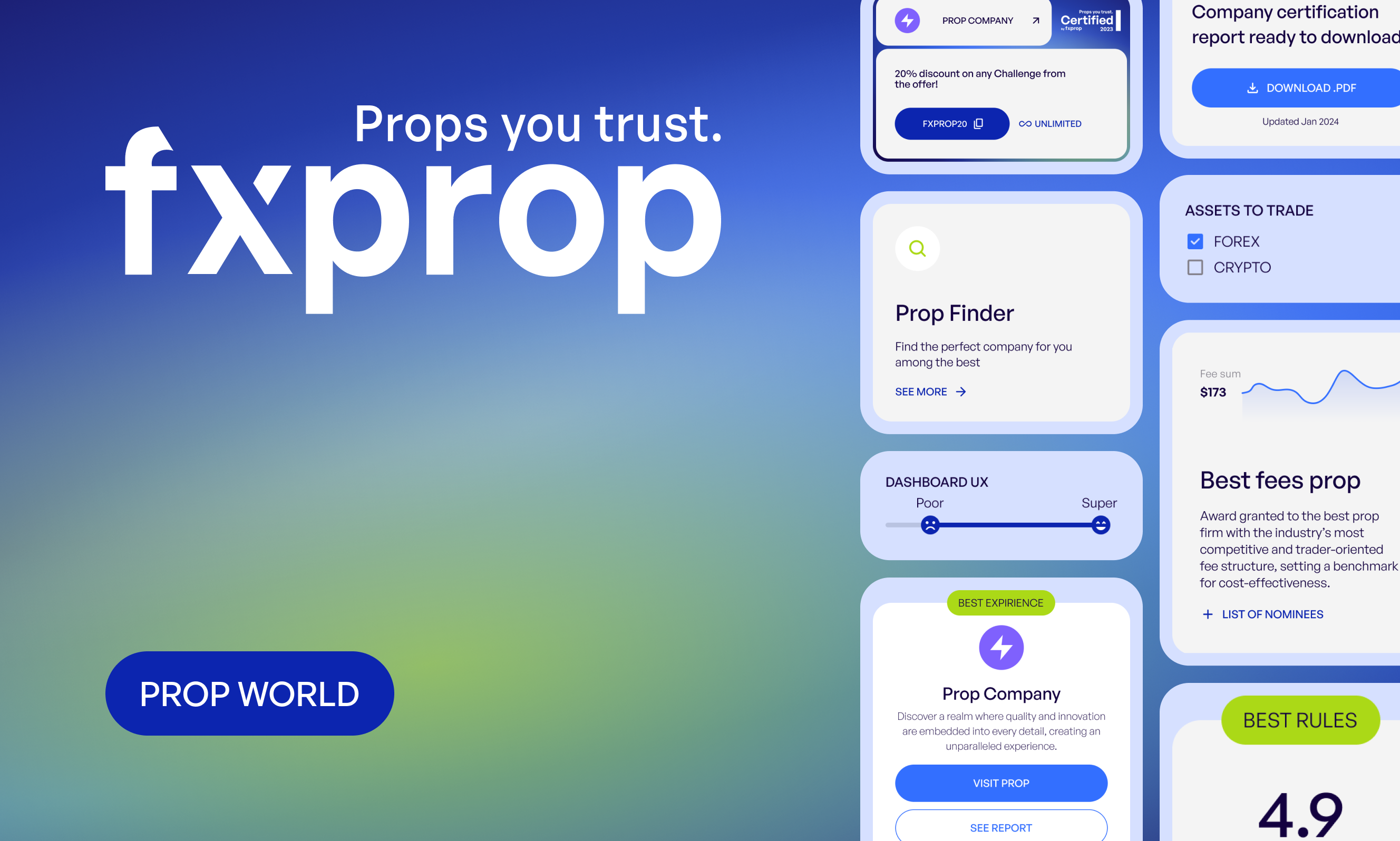
Prop Trading: What Is It and How Does It Work?
Have you ever wondered about the secrets of modern Prop Trading? Have you heard about the impressive profits that can be made in this sector, but are unsure how to start your adventure? If you answered yes to this questions, then you have come to the right article that will dispel your doubts! We will bring you closer to the world of online Prop Trading, explaining exactly what this type of trading involves.
What Exactly Is Prop Trading?
Prop Trading, short for proprietary trading describes a model of cooperation between a Prop Trading firm and an external trader. Popular firms like Founded Global or FTMO provide traders with their capital for trading, in return for a share in the generated profits. However, before this happens, the trader must prove their skills during a so-called challenge.
Challenge: What You Need To Know?
The challenge is a selection stage that traders must overcome to gain access to the funds offered by a Prop Trading firm. It serves as a kind of test to assess both trading skills and the effectiveness of the strategies used by traders. It is a key element in the verification process, ensuring the firm that they are entrusting their capital to competent traders.
To participate in the challenge, you must pay an initial fee. The amount varies depending on the size of the capital the trader intends to manage. Usually, the price for a challenge ranges from 100 to 1000 dollars. After making the payment, the trader gains access to a demo account, where they must achieve a predetermined profit within a specified time, without exceeding a clearly defined maximum loss level. The challenge typically includes two phases: the challenge and the verification. If the trader passes them successfully and achieves the results required by the firm, they gain access to a funded account.
In the case of the Czech Prop Trading firm FTMO, to gain access to an account worth 100,000 dollars, the trader must meet the following conditions:
- In the first phase, traders have unlimited time to achieve a profit of 10,000 dollars, while they must trade for at least 4 days. They cannot exceed a maximum daily loss of 5,000 dollars and a total loss of 10,000 dollars.
- In the second phase, the requirements are similar, but the profit target is reduced to 5,000 dollars, with the same limits for daily and total loss.
Benefits of Prop Trading: What Do You Gain?
The main advantage of working with a Prop Trading firm is access to significant investment funds. The financial resources of such firms usually far exceed the investment capabilities of individual traders, which opens the door to executing larger transactions – and thereby, the opportunity to achieve higher profits.
Additionally, trading within a Prop Trading firm reduces investment risk. Traders risk only the fee paid as part of the challenge, which, after gaining access to the funded account, is refunded. All this makes the risk-reward ratio in the overall settlement much more favorable than trading on one’s own account with a CFD broker.
Main Disadvantages of Prop Trading You Should Know About
Although Prop Trading offers many benefits, there are also specific disadvantages to consider before collaborating with a Prop Trading firm. By participating in the challenge, the trader risks an initial financial contribution. This risk becomes especially significant as, in the event of failing to achieve the set goals, the trader loses the invested funds. This means that every participant in the challenge must be aware of the potential loss of their initial investment.
Moreover, the level of risk directly depends on the amount the trader decides to invest in the challenge. Prop trading firms often offer different levels of challenges, which vary in both potential profits and risks. For this reason, choosing a higher-value challenge increases potential benefits, but also raises the stakes and risk.
Legality of Prop Trading
Given the growing popularity of Prop Trading firms, questions often arise about their legality, especially in contrast to the long-standing presence and established position of CFD brokers in the market. The answer is clear: yes, Prop Trading firms operate entirely legally.
These modern entities operate under regulation by the relevant financial authorities, ensuring compliance with the laws in the countries where they operate. Such regulation ensures that the rules and procedures they apply meet established industry standards, guaranteeing safety for traders and their investments.
Additionally, Prop Trading firms are characterized by a high degree of transparency. They publish detailed regulations that clearly explain the rules of trading, profit sharing, and potential risks. This allows traders to fully understand the terms of cooperation and the potential consequences of their investment decisions before embarking on collaboration.








![10% Off For Traders Discount Code [2024]](https://fxprop.com/wp-content/uploads/2024/01/24.png)


